While stray dogs live on the streets and do their best to survive, they long to be noticed and to be given a roof over their head.
Once they get rescued and taken to a shelter, their hearts are filled with hope that somebody would stop by their kennel and decide to take them home.
Nicholas, a sweet shelter pup, hoped to get adopted, too, as he stood by his kennel door every time he heard visitors entering the shelter.
Just when Nicholas began losing hope of ever getting a forever home, the most amazing thing happened.
Nicholas Craved For A Home
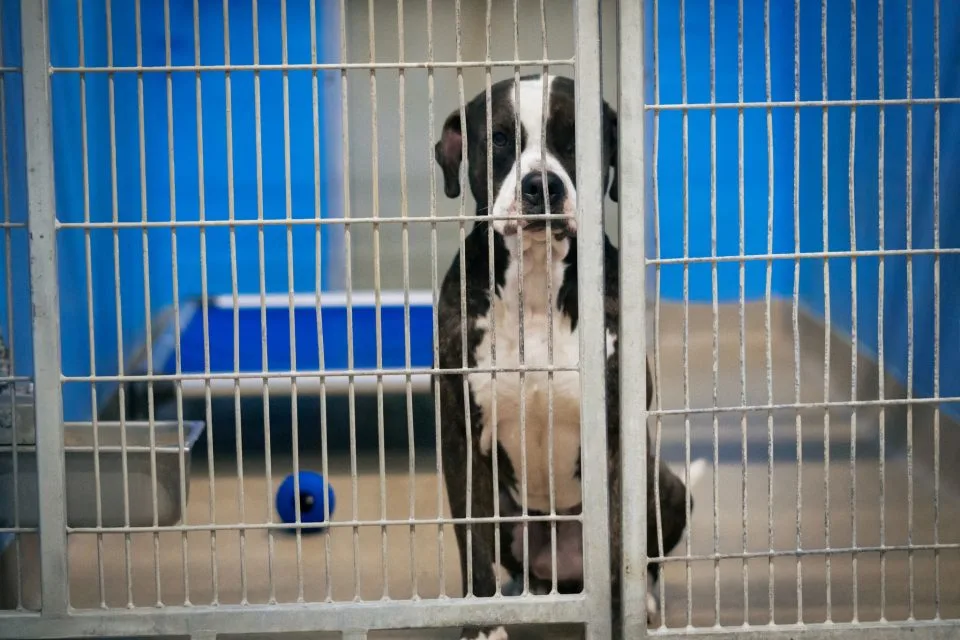
When Nicholas was rescued by Orange County Animal Services, a rescue based in Orlando, Florida, he was a fearful and timid pup.
Having realized that he was safe and cared for, he got relaxed and fell in love with all the shelter staff and volunteers.
Every time potential adopters came to the shelter, Nicholas hoped that one of them would look at him and give him an opportunity to capture their heart.
He was excited to see the visitors, and he wagged his tail, trying to let them know that he wanted to meet them. Sadly, days passed and nobody noticed him.
Nicholas saw many fellow residents leave the shelter in the arms of their forever parents.
After being disappointed time after time, he gradually started losing hope that he would ever leave the shelter.
All He Needed Was A Chance
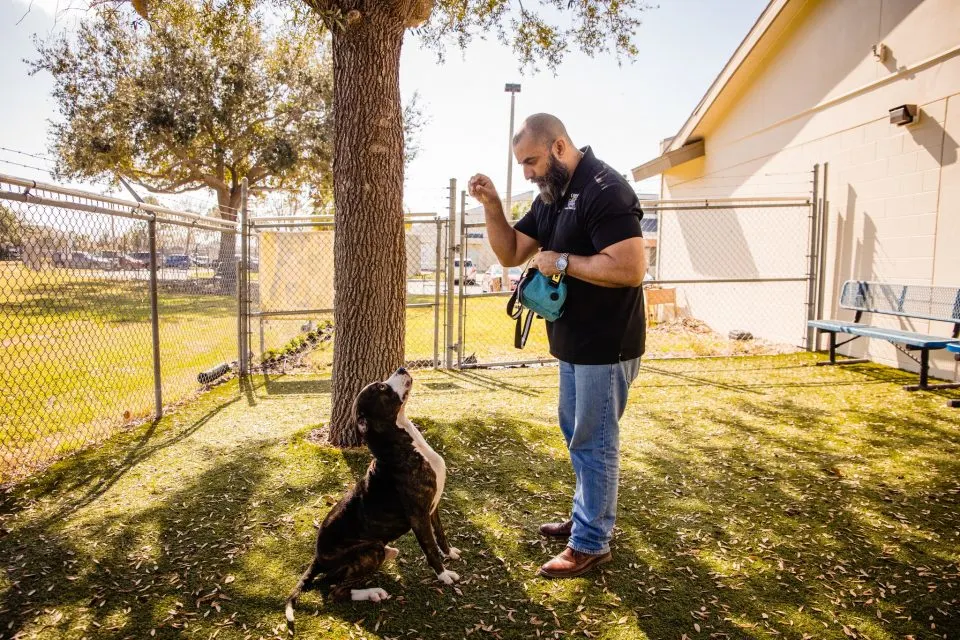
Seeing that the sweet pup was constantly overlooked, the shelter staff was heartbroken. People preferred adopting smaller dogs. They were more desirable.
Nicholas loved being outside. Although the shelter volunteer took him for a walk every day, it wasn’t enough. After a walk, Nicholas didn’t want to go back to his kennel. He needed more time to play.
His shelter friends were convinced that Nicholas would get adopted if potential adopters gave him the opportunity to meet them and spend some time with them.
“We knew what kind of dog he was, we knew he was amazing. He’s one of those dogs that just likes people. He likes attention. He wants to snuggle. He wants to be on your lap,” said Bryant from Orange County Animal Services.
Grateful For All The Love
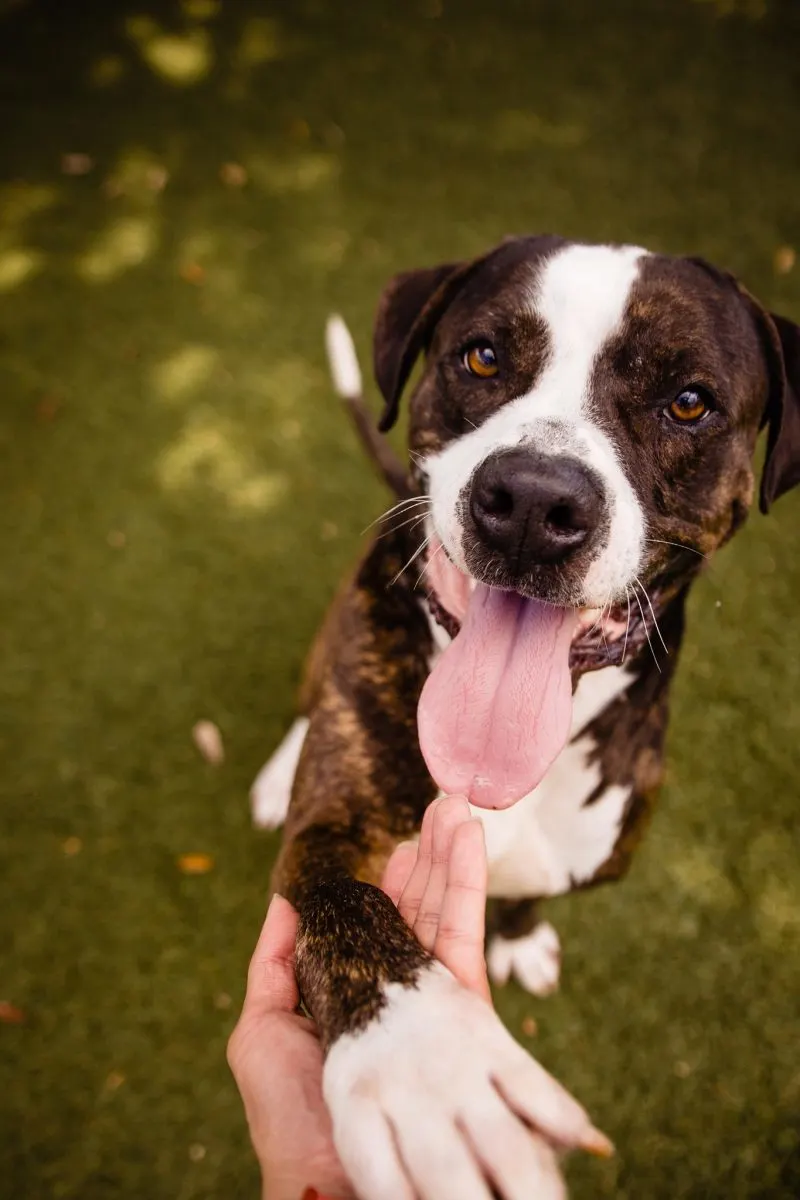
Nicholas was the longest shelter resident, and yet he never became bitter. He was happy whenever he had the opportunity to interact with his human friends. The delightful pup loved them very much, and he appreciated their friendship.
His shelter friends loved him, too, and they rooted for him to get the home that he longed for. Although they posted his story on social media, and even put his story on the local news, Nicholas’ situation remained the same.
Nobody came to meet him and give him a chance.
The shelter members had the idea of organizing his big adoption day. They called it Pick-Nick Saturday. They wholeheartedly hoped that one of the visitors would come and pick Nick.
A week before they hosted the event, a woman came and she fell in love with Nick.
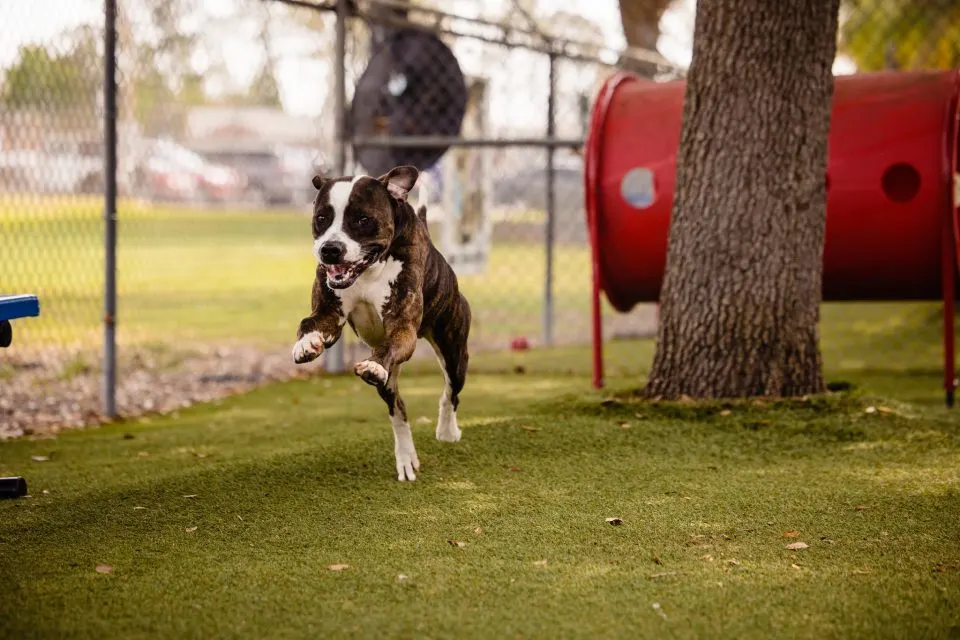
“She just genuinely came in and fell in love with the dog organically. She met him and she liked him and she couldn’t stop thinking about him,” said Bryant.
Nicholas was overjoyed to have finally found a home.
Unfortunately, his mom was unable to spend more time with him and help him adjust to the new environment, even though she loved him. When Nicholas was left alone in the apartment, he got scared and he barked more than usual.
Nicholas’ mom had to return the sweet dog to the shelter in Orlando, Florida, because her neighbors issued a complaint due to his barking.
The Happy Ending He Was Waiting For
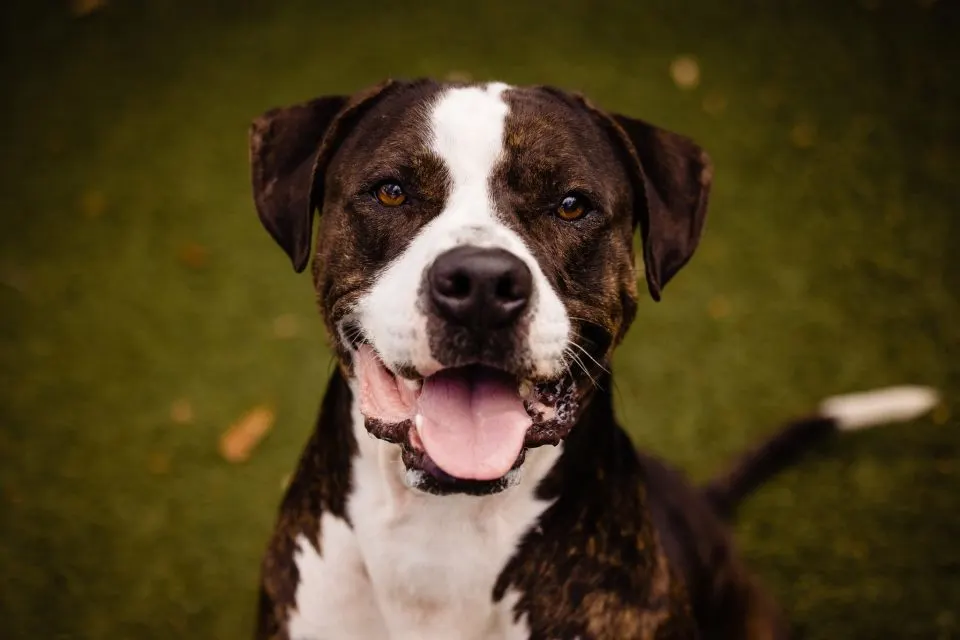
Nicholas’s human friends were sad when they saw him enter the kennel once again, but the adorable pup didn’t realize that he had been given up. He was overjoyed to see his old human friends.
His shelter friends didn’t give up, and they kept posting about Nicholas on their social media platforms.
On April 29th, in 2023, Orange County Animal Services shared the happy news that Nicholas found his forever home.
His friends were emotional when they had to say goodbye to Nicholas, but they were very happy that their adorable boy would ride into the sunset with his forever family.
Nicholas’ dad came to take him home, and the charming dog wiggled his tail, and with a wide grin on his face, he hopped into the car. His family promised him that they would love him forever, and that they would never give him up.
I’m over the moon that Nicholas finally found the happiness and love he had searched for for so long. This sweet dog deserved to get his happy ending.
Have you ever wondered why your furry friend loves to shower you with slobbery kisses? It’s a common behavior among dogs that often leaves us feeling both loved and puzzled. The act of a dog licking your face can be endearing, but have you ever stopped to think about the reasons behind this canine display of affection?
For most dog owners, having their pup lick their face is a familiar and sometimes amusing experience. But beyond the surface level of this behavior lies a deeper meaning that stems from a dog’s instincts and social cues. Understanding why dogs engage in this behavior can offer insights into their communication methods and the bond they share with their human companions. So, next time your furry friend plants a wet one on your cheek, remember, there’s more to it than just a simple lick.
Exploring the Behavior: Why Do Dogs Lick Your Face
Dogs lick your face because it’s their way of showing affection and bonding with you. When a dog licks your face, it releases endorphins that make them feel happy. This behavior is rooted in their instincts and social cues, signifying trust and love.
- Affection and Bonding: Licking your face is a dog’s natural way of expressing love and attachment to you. It’s a behavior they learn from their mother as puppies to seek attention and care.
- Social Connection: Dogs consider you part of their pack. Licking your face mimics their grooming behavior within a pack, reinforcing social bonds and showing submission to you as the leader.
- Taste and Scent: Your skin tastes salty, and dogs are drawn to this taste. They are also attracted to your scent, which is comforting and familiar to them.
- Communication: Dogs communicate through body language, and licking your face is a way for them to convey various messages like excitement, relaxation, or seeking attention.
Understanding why dogs lick your face can deepen your bond with your furry companion and enhance your relationship with them. It’s a unique aspect of canine behavior that showcases their affection and trust in you. So next time your dog showers you with slobbery kisses, embrace it as their way of showing love and connection.
The Social and Evolutionary Aspect of Face Licking
When your dog licks your face, it’s not just about affection; it’s rooted in their evolutionary past and social behaviors.
Social Bonding:
- Face licking stems from a dog’s wolf ancestry when grooming was a way to maintain pack harmony.
- Dogs licking your face is a sign of trust, love, and a desire to strengthen the social connection with you.
- Just like wolves grooming pack members, dogs lick to reinforce social bonds with their human family.
Mimicking Pup Behavior:
- Puppies lick their mother’s face for attention and food; this behavior continues into adulthood.
- Dogs learn to lick your face from their mother as a way to seek care and demonstrate affection.
- Licking is a means of communication for dogs, conveying emotions like excitement, relaxation, or a need for attention.
- By licking your face, dogs express their feelings and establish a deeper emotional bond with you.
Understanding the social and evolutionary roots of face licking helps strengthen the unique bond between you and your furry companion, indicating their trust, love, and desire for connection with you.
Psychological and Emotional Connection
When your dog licks your face, it’s more than just a sign of affection. This behavior is deeply rooted in the emotional and psychological connection between you and your furry friend.
- Bonding and Trust: Dogs licking your face is a way for them to bond with you and build trust. By engaging in this act, dogs feel closer to their owners and strengthen their emotional connection.
- Anxiety and Comfort: Licking can also be a way for dogs to cope with anxiety or seek comfort. Just like a hug or a pat on the back can soothe you, licking your face provides emotional support to your dog.
- Endorphin Release: The physical act of licking releases endorphins in dogs, making them feel happy and content. This natural “feel-good” response reinforces their emotional bond with you.
- Communication: Dogs use licking as a form of non-verbal communication to express their emotions. Whether they’re excited, relaxed, or in need of attention, licking your face is their way of connecting with you.
Understanding the psychological and emotional reasons behind why dogs lick your face can deepen your bond with your canine companion. It’s a unique form of communication that showcases the love, trust, and emotional connection they share with you.
Health Implications of Face Licking
Maintaining Oral Hygiene:
When your dog licks your face, it’s essential to consider their oral health. Dogs’ mouths contain bacteria that could potentially be harmful to humans, especially those with compromised immune systems. Ensuring your dog has good oral hygiene through regular dental check-ups and teeth cleaning can help minimize this risk.
Allergies and Skin Irritation:
If you notice skin irritation or develop allergies after your dog licks your face, it could be a sign of an underlying issue. Some people are sensitive to proteins in a dog’s saliva, leading to skin reactions. Monitoring any adverse reactions and consulting a healthcare professional may be necessary to address these concerns.
Transmission of Zoonotic Diseases:
Zoonotic diseases are illnesses that can be transmitted between animals and humans. While the risk is relatively low, certain diseases like ringworm or some parasites can potentially be spread through your dog’s saliva. Maintaining your dog’s veterinary care and hygiene practices can help mitigate this risk.
Behavioral Implications:
In some cases, excessive face licking can be a sign of behavioral issues in dogs, such as anxiety or compulsive behavior. Understanding the underlying cause of this behavior and addressing it through training or behavioral modification techniques can help enhance your dog’s overall well-being.
Potential Emotional Benefits:
Despite the health considerations, many dog owners perceive face licking as a display of affection and bonding. This act can create a sense of connection and comfort for both you and your furry companion, reinforcing the emotional bond between you.
Remember to balance the affectionate aspects of face licking with the necessary precautions to ensure both you and your dog stay healthy and happy. Regular vet check-ups and maintaining good hygiene practices are key to enjoying this form of canine communication without compromising your well-being.
Managing and Understanding Face Licking
Controlling Face Licking:
To manage your dog’s face licking behavior, you can teach them alternative ways to show affection, such as offering a toy or a treat. Redirecting their behavior positively can help them understand acceptable forms of interaction.
Setting Boundaries:
Establishing clear boundaries through training is essential. Utilize commands like “no lick” or “enough” consistently to communicate when face licking is not desired. Be firm and assertive to reinforce these boundaries effectively.
Regular Training Sessions:
Conduct consistent training sessions to reinforce obedience and boundary adherence. Positive reinforcement techniques, like rewarding desired behaviors, can aid in teaching your dog to control their urge to lick faces.
Behavioral Evaluation:
If face licking persists excessively or is accompanied by other concerning behaviors, seek guidance from a professional dog behaviorist or trainer. They can assess the underlying reasons for the behavior and provide tailored solutions.
Health Monitoring:
Regularly monitor your dog’s health and hygiene to minimize the risks associated with face licking. Keep up with routine veterinary check-ups to ensure your furry companion’s overall well-being and address any health issues promptly.
Balancing Affection and Discipline:
Maintaining a balance between showing affection and setting boundaries is crucial. While it’s essential to bond with your dog, establishing rules and limits will help create a harmonious relationship built on respect and understanding.
Recap and Final Advice:
By understanding your dog’s behavior, setting clear boundaries, and prioritizing their health, you can effectively manage and regulate face licking. Remember, consistent training, positive reinforcement, and regular vet visits are key to fostering a healthy and happy bond with your canine companion.
Conclusion
So, there you have it – your furry friend’s face licking isn’t just about slobbery kisses; it’s their way of showing love, trust, and happiness. While it may pose some health risks, like allergies and hygiene concerns, understanding your dog’s behavior and setting boundaries can help manage this affectionate gesture. Remember, training, regular check-ups, and addressing any underlying anxiety or compulsive behaviors are key to a happy and healthy relationship with your pup. By balancing affection with discipline and prioritizing their well-being, you can enjoy those wet kisses while keeping both you and your four-legged friend safe and content.
Frequently Asked Questions
Why do dogs lick their owners’ faces?
Dogs lick their owners’ faces as a sign of affection, trust, and bonding. It is a learned behavior that helps release endorphins in dogs, contributing to their happiness and anxiety management.
What are the health implications of dogs licking faces?
Health implications of dogs licking faces include potential oral hygiene concerns, allergies, and the transmission of zoonotic diseases.
How can I address behavioral concerns related to face licking?
To address behavioral concerns like anxiety and compulsive behavior in dogs, it is essential to recognize and address these issues promptly. Seek behavioral evaluation if needed and consider training and setting boundaries.
How can I manage my dog’s face licking behavior?
Manage your dog’s face licking behavior through training, setting boundaries, conducting regular training sessions, monitoring health, and balancing affection with discipline. Understanding your dog’s behavior and prioritizing their health are key to nurturing a healthy relationship.
[no_toc]

Hey there, I’m Janet Brooks, a dog-loving student from California. I’m all about helping pups in need, especially those without homes. Me and my awesome friends work together to give shelter and love to stray dogs. Oh, and I also write blogs about dogs to share helpful info.